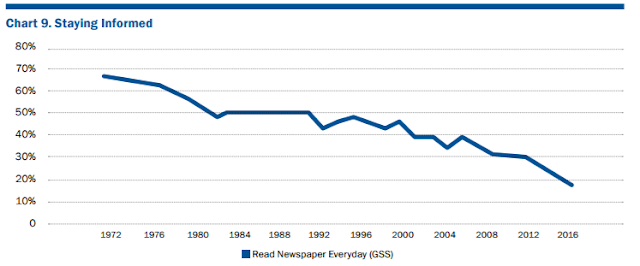Youth Media as a Means of Civic Development

by Shawn P. Healy, PhD, Democracy Program Director Last week, I had the privilege of attending a meeting convened by the Center for Information Research on Civic Learning and Engagement titled “Youth, Media, and Civic Engagement in Local Contexts.” The meeting was supported by the Democracy Fund and hosted in Chicago by the McCormick Foundation and Mikva Challenge . Wide-ranging conference discussions touched on a number of subjects, but centered on media’s role in youth civic development. This occurs in the context of local media ecosystems, some healthier and more diverse than others. And involves youth as both consumers and producers of news. As a college instructor that guides students in creating issue campaigns for policy change, I am increasingly struck by the divergence in our respective media diets. Like many of you, mine is decidedly “old school,” as I have newspapers delivered to my door and read them cover-to-cover every day. While I sample in new media offerings














